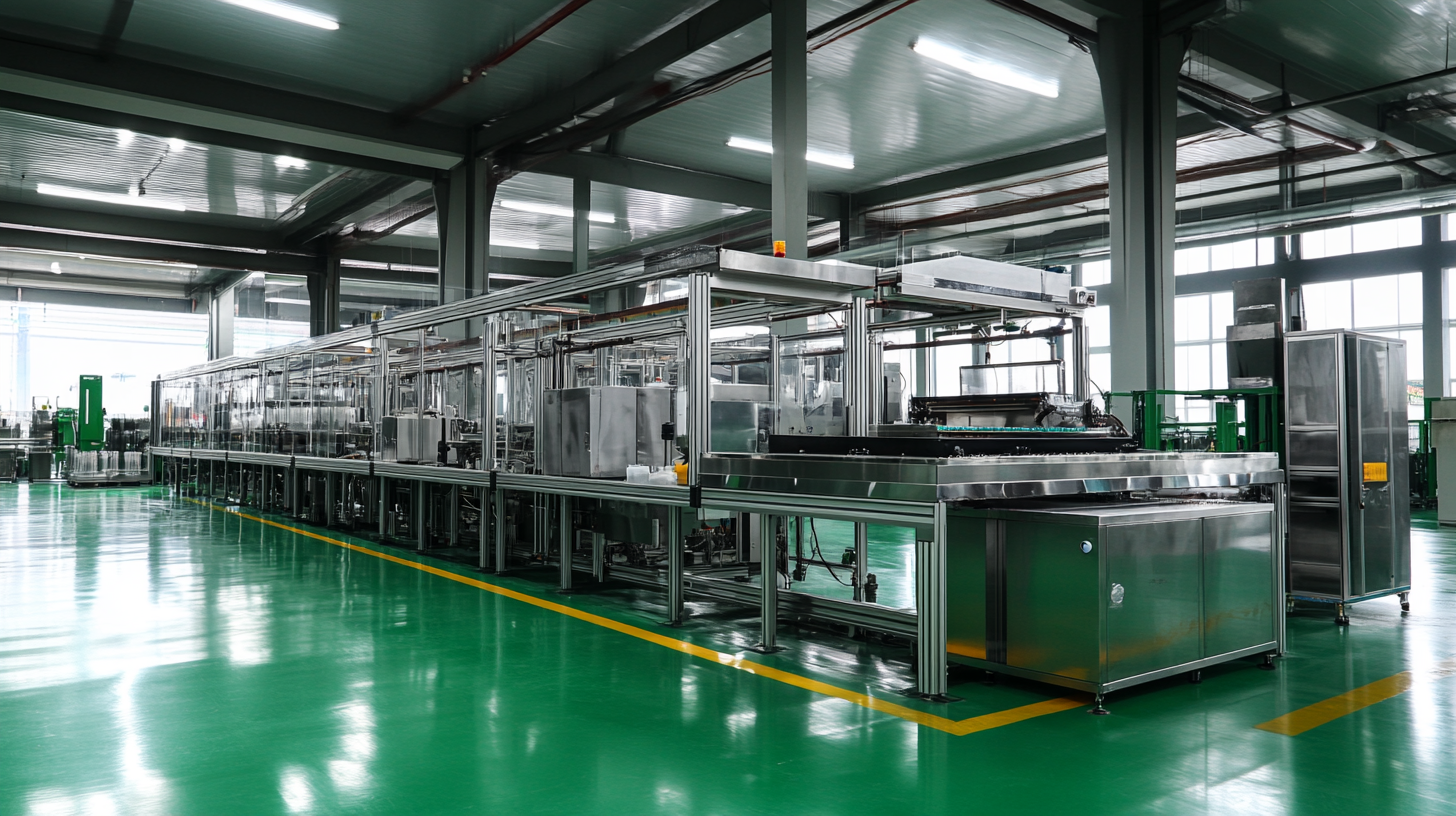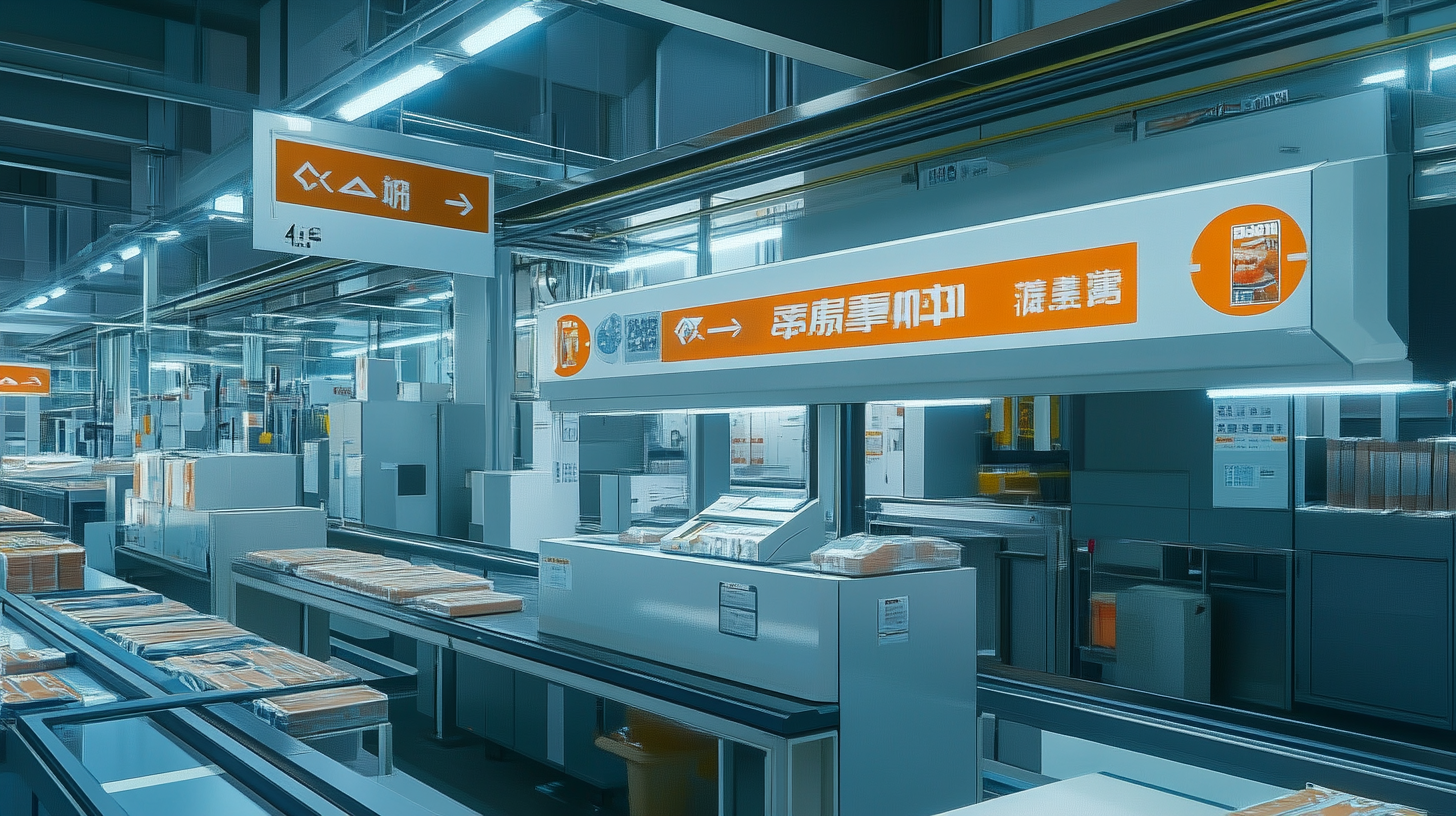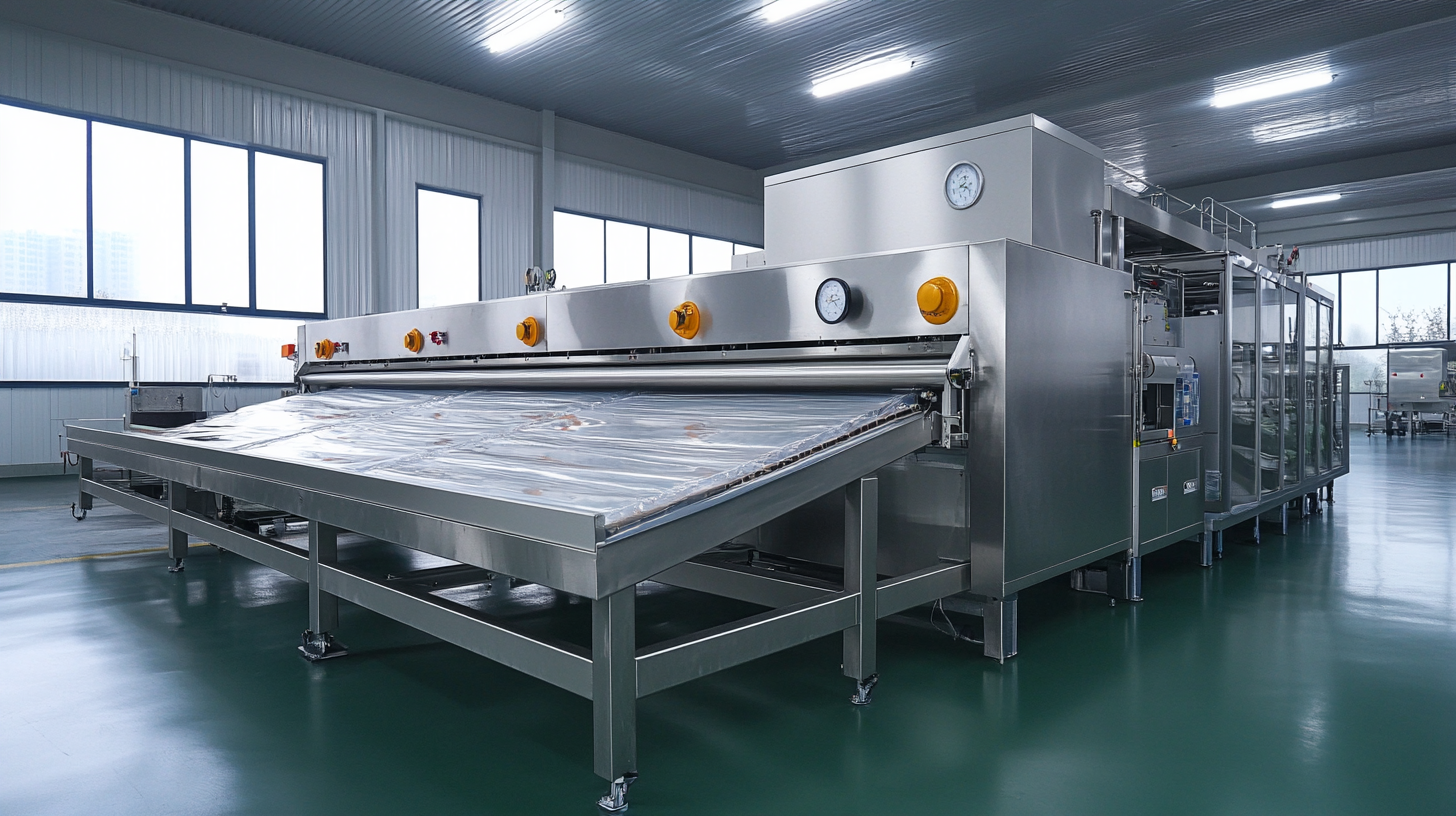Call for Price: 0086-15515573212
As global manufacturing continues to evolve, the integration of advanced technologies in production lines has never been more critical. The global automatic packing machine market is projected to reach USD 5.5 billion by 2027, growing at a CAGR of 7.2% from 2020. With the ever-increasing demands for efficiency, accuracy, and cost-effectiveness, businesses must adapt to these changes to remain competitive. An Automatic Packing Machine not only enhances productivity but also minimizes human error, providing consistent quality in packaging processes.
The rise of automation is transforming traditional manufacturing landscapes. According to a report by Smithers Pira, the packaging industry is witnessing a shift towards automated solutions, with more than 50% of manufacturers currently investing in upgrading their packing systems. This trend highlights the significance of incorporating state-of-the-art automatic packing machines into production lines, enabling companies to improve operational efficiency, reduce labor costs, and meet the growing consumer expectations for fast and reliable delivery. Embracing these innovations is essential for manufacturers looking to revolutionize their production capabilities and thrive in a competitive market.

Automatic packing machines are playing a pivotal role in transforming production efficiency across various industries. According to a report by MarketsandMarkets, the automatic packaging market is projected to reach $55 billion by 2025, growing at a CAGR of 4.4%. This growth illustrates the increasing reliance on technology to optimize packaging processes, facilitate faster production lines, and reduce operational costs. As businesses continue to adopt automation, they benefit from enhanced accuracy in packaging, which reduces waste and increases product reliability. The efficiency of automatic packing machines is further underscored by a study from Grand View Research, which states that automation in packaging can increase production rates by up to 30% while also minimizing labor costs. Given the tight labor market and rising wages, companies are increasingly investing in these state-of-the-art solutions to remain competitive. Features like high-speed processing and the ability to handle diverse packaging formats make these machines indispensable on modern production lines, allowing companies to respond swiftly to market demands. Moreover, the integration of smart technologies into these machines, such as IoT capabilities, allows for real-time monitoring and data collection. This aspect is crucial as it enables manufacturers to analyze performance metrics, predict maintenance needs, and ultimately enhance overall operational efficiency. As outlined in a report by Research and Markets, manufacturers adopting smart packing technologies have reported increases in productivity of up to 20%, marking a significant leap forward in production line innovation.

In the fast-paced world of manufacturing, the implementation of state-of-the-art automatic packing machines can significantly enhance production efficiency and accuracy. These advanced systems are designed to streamline the packing process, reducing the time taken from production to distribution. The key benefit of adopting such technology lies in its ability to minimize human error, ensuring that products are packed consistently and securely. This reliability not only boosts the quality of the final output but also helps in maintaining brand reputation.
Additionally, automatic packing machines are equipped with innovative features such as real-time monitoring and data analytics. These capabilities allow manufacturers to track performance metrics and optimize their operations on the fly. By analyzing packing speeds, material usage, and error rates, businesses can identify bottlenecks and implement improvements swiftly. This data-driven approach leads to better resource management and cost efficiency, ultimately increasing profit margins.
Furthermore, modern packing technology often incorporates versatility, allowing for the accommodation of various product sizes and types without requiring extensive reconfiguration. This flexibility enables manufacturers to adapt quickly to changing market demands and customer preferences. Moreover, the use of automation in packing reduces labor costs and enhances workplace safety by minimizing the physical strain on employees, creating a more sustainable work environment.

In today's competitive marketplace, automatic packing machines have become an indispensable asset for manufacturers looking to enhance product quality and consistency. As highlighted in recent reports from the Chinese dairy machinery manufacturing industry, innovative technologies are being rapidly adopted to meet increasing consumer demands for safety and reliability in food products. This aligns with the industry's goal to promote domestic brands that are synonymous with excellence.
According to the China Dairy Industry Association, investments in advanced packing technologies can lead to a remarkable 25% increase in packaging efficiency while maintaining stringent quality controls. Automatic packing machines ensure precise filling and sealing processes, which are essential in preserving the freshness and integrity of dairy products. This technology reduces human error and minimizes contamination risks, thus enhancing overall product quality.
Furthermore, the integration of smart technologies in packing solutions allows for real-time monitoring and data collection. Reports indicate that companies utilizing automated systems have noted a significant drop in spoilage rates, with some achieving reductions of up to 30%. As manufacturers prioritize consistency, these developments underscore the importance of automatic packing machines in establishing a robust production line poised for growth in the era of digital manufacturing.

The integration of automation in production lines has become a crucial step for businesses aiming to enhance efficiency and reduce operational costs. According to a report by McKinsey, firms that implement automation technologies can achieve up to a 30% increase in productivity. This is particularly relevant for packing processes, where precision and speed are vital. By upgrading to state-of-the-art automatic packing machines, companies not only keep pace with industry standards but also significantly improve their output capacity.
Seamless upgrades can be made to existing production lines without extensive downtime. For instance, installing automatic packing machines that communicate with other automated systems reduces the likelihood of human error and streamlines workflows. A survey by the International Federation of Robotics indicated that automation adoption can lead to a 25% reduction in labor costs, allowing businesses to reallocate resources to other critical tasks.
Moreover, automatic packing machines are increasingly equipped with smart technologies, such as AI and machine learning, which further enhance their operational efficiency. These smart machines can analyze data in real time, optimizing packing processes based on demand fluctuations. The e-commerce sector alone is predicted to see a 400% growth in package volumes by 2025, according to a report from the Packaging Association. This forecast underscores the urgent need for businesses to invest in automated solutions to meet evolving market demands efficiently.
The landscape of automatic packing solutions is rapidly evolving, driven by advancements in technology and the increasing demand for efficiency in production lines. One of the most significant trends is the integration of artificial intelligence and machine learning into packing machines. These technologies enable machines to analyze data in real-time, optimizing packing processes by adjusting to variations in product size and shape without human intervention. This adaptability not only minimizes waste but also enhances speed, ensuring that products are packed with precision and in record time.
Another vital trend reshaping the industry is the push towards sustainability. Many manufacturers are now focusing on eco-friendly materials and processes. Automatic packing machines are being designed to use biodegradable or recyclable materials, reducing environmental impact. Additionally, these machines are incorporating energy-efficient components that lower power consumption during operations. As consumers increasingly prioritize sustainability, companies that adopt innovative packing solutions are likely to gain a competitive edge in the market.
Furthermore, the role of automation in smart factories cannot be overlooked. With the advent of the Internet of Things (IoT), packing machines are becoming interconnected with other machinery on the production line. This interconnectivity allows for seamless communication between devices, facilitating a more synchronized workflow. In such environments, production efficiency is maximized, and downtime is minimized, paving the way for industry innovations that redefine how packing processes are executed. Embracing these future trends not only enhances operational capabilities but also prepares businesses for the challenges of a rapidly changing market.